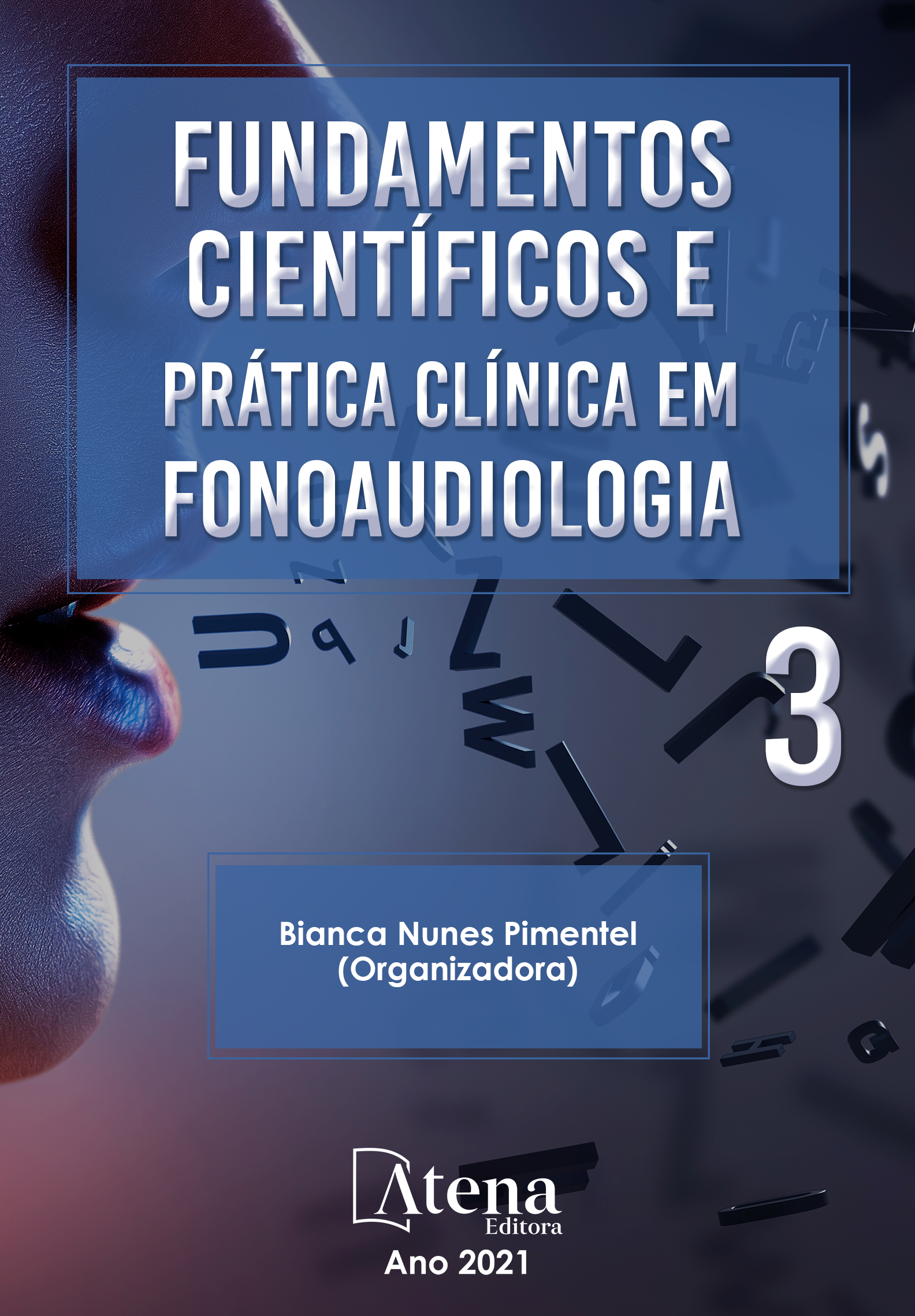
TELEMONITORAMENTO A PACIENTES ONCOLÓGICOS NO CONTEXTO DA COVID-19: RELATO DE EXPERIÊNCIA
A atual conjuntura de enfrentamento à COVID-19, prevê adoção de isolamento/ distanciamento social para combater a disseminação do vírus, mas, pacientes com diagnóstico oncológico necessitam da continuidade de seus atendimentos. Foi objetivo deste capítulo relatar a experiência do telemonitoramento a pacientes oncológicos com demandas fonoaudiológicas. Todos os pacientes já haviam realizado pelo menos uma consulta presencial. Considerou-se o interesse no acompanhamento fonoaudiológico à distância, mínimo entendimento de tecnologia e/ou disponibilidade de familiar capaz de auxiliá-los;local de residência; e o grau de disfagia e de disfonia. A partir disso, foram agendadas consultas online. Os atendimentos tiveram duração de 30 minutos, foram realizados em sala reservada, por uma fonoaudióloga, nas dependências do hospital e estruturados por meio de protocolo elaborado pela equipe dividido em três domínios onde, o primeiro caracterizava o estado geral do paciente no momento, o segundo apresentava questões acerca da manutenção da terapia fonoaudiológica e o terceiro apresentava orientações sobre higiene respiratória e cuidados para prevenção da Covid-19. Aqueles que apresentaram queixas condizentes com piora do quadro de disfagia e/ou inadequação acentuada nas técnicas fonoaudiológicas tiveram agendado retorno presencial. Ao final da sessão, os atendimentos foram avaliados pelo indicador de desempenho Net promoter Score (NPS). Todos os pacientes que receberam o convite concordaram com o atendimento e tiveram condições de realizá-lo. Durante 30 dias foram realizados seis atendimentos de disfagia e seis de disfonia. Em alguns casos foram encontradas dificuldades de estabelecer a conexão. Durante o acompanhamento dos exercícios era solicitado que o paciente os executasse para caso necessário, fazer adequações. Em um atendimento foi necessário suspender a via oral de alimentação e neste caso foi fornecido retorno presencial. Nesta experiência o telemonitoramento mostrou-se efetivo, pois sem expor o paciente foi possível atender às suas demandas e reforçar os cuidados sanitários necessários.
TELEMONITORAMENTO A PACIENTES ONCOLÓGICOS NO CONTEXTO DA COVID-19: RELATO DE EXPERIÊNCIA
-
DOI: 10.22533/at.ed.85521130516
-
Palavras-chave: Fonoaudiologia, Telemonitoramento, Oncologia.
-
Keywords: Speech, Language and Hearing Sciences; Telemonitoring; Medical Oncology
-
Abstract:
The current situation of coping with COVID-19, provides for the adoption of social isolation / distance to combat the spread of the virus, but patients with an oncological diagnosis need continuity of care. The purpose of this chapter was to report the experience of telemonitoring to oncology patients with speech therapy demands. All patients had already attended at least one presencial consultation. It was considered the interest in distance speech therapy monitoring, minimal understanding of technology and / or availability of a family member able to assist them, place of residence; and the degree of dysphagia and dysphonia. Based on that, online consultations were scheduled. The consultations lasted 30 minutes, were performed in a private room, by a speech therapist, on the hospital's premises and structured through a protocol prepared by the team divided into three domains where, the first characterized the general condition of the patient at the time, the second presented questions about the maintenance of speech therapy and the third presented guidance on respiratory hygiene and care for the prevention of Covid-19. Those who presented complaints consistent with worsening dysphagia and / or marked inadequacy in speech therapy techniques have had scheduled presencial visits. At the end of the session, the attendances were evaluated using the Net promoter Score (NPS) performance indicator. All patients who received the invitation agreed to the service and were able to do it. During 30 days, six dysphagia and six dysphonia appointments were performed. In some cases, difficulties were encountered in establishing the connection. During the follow-up of the exercises, the patient was asked to perform them in order to make adjustments, if necessary. In one appointment, it was necessary to suspend the oral feeding route and in this case, was provided presencial attendance. In this experience, telemonitoring proved to be effective, since without exposing the patient, it was possible to meet their demands and reinforce the necessary health care.
-
Número de páginas: 5
- Danielle Marques de Azevedo
- Iasmim Kasprczak
- Fernanda Tormem Korspalski
- Monalise Costa Batista Berbert
- Vera Beatris Martins
- Maiara Tomanchieviez


